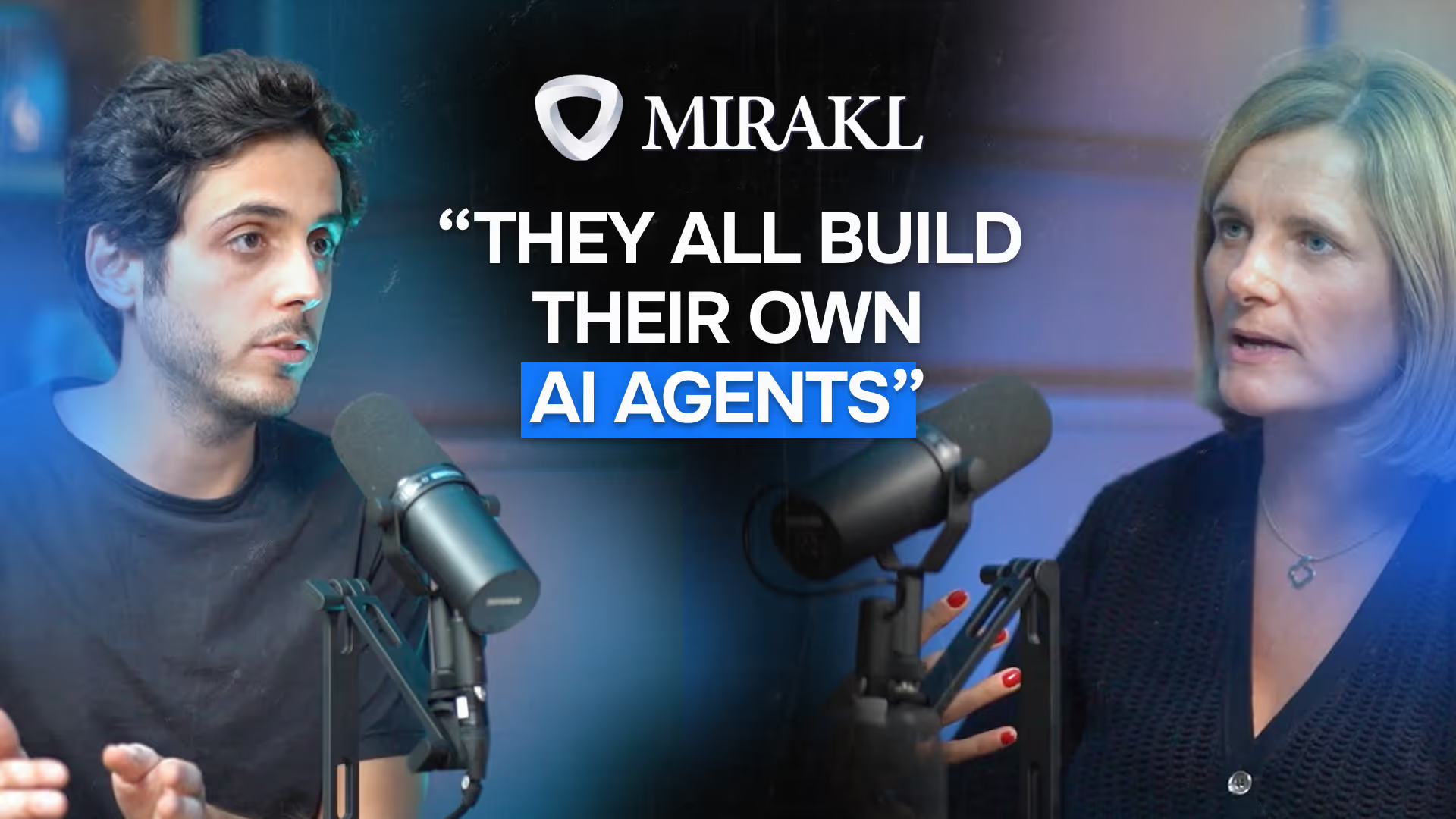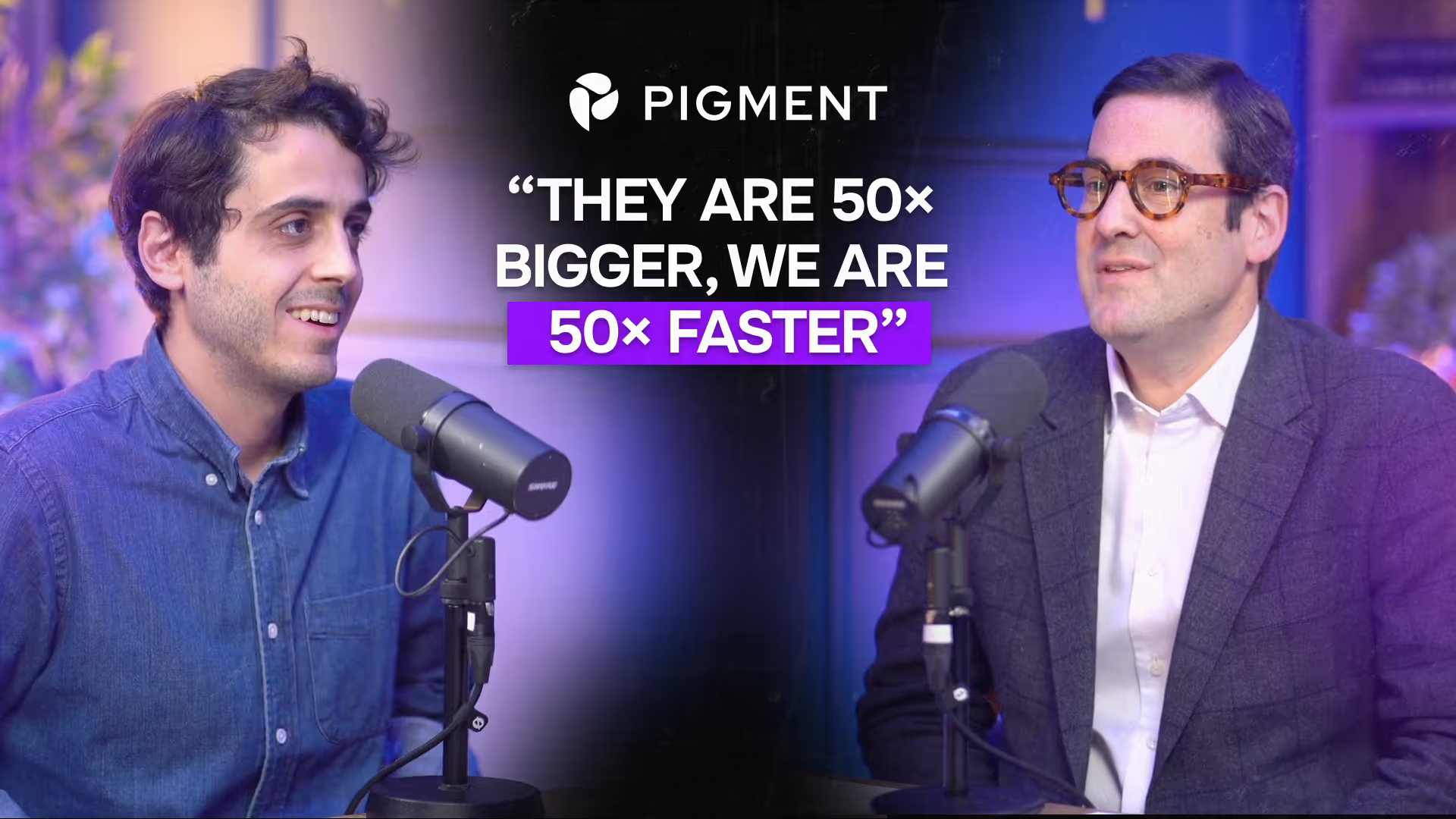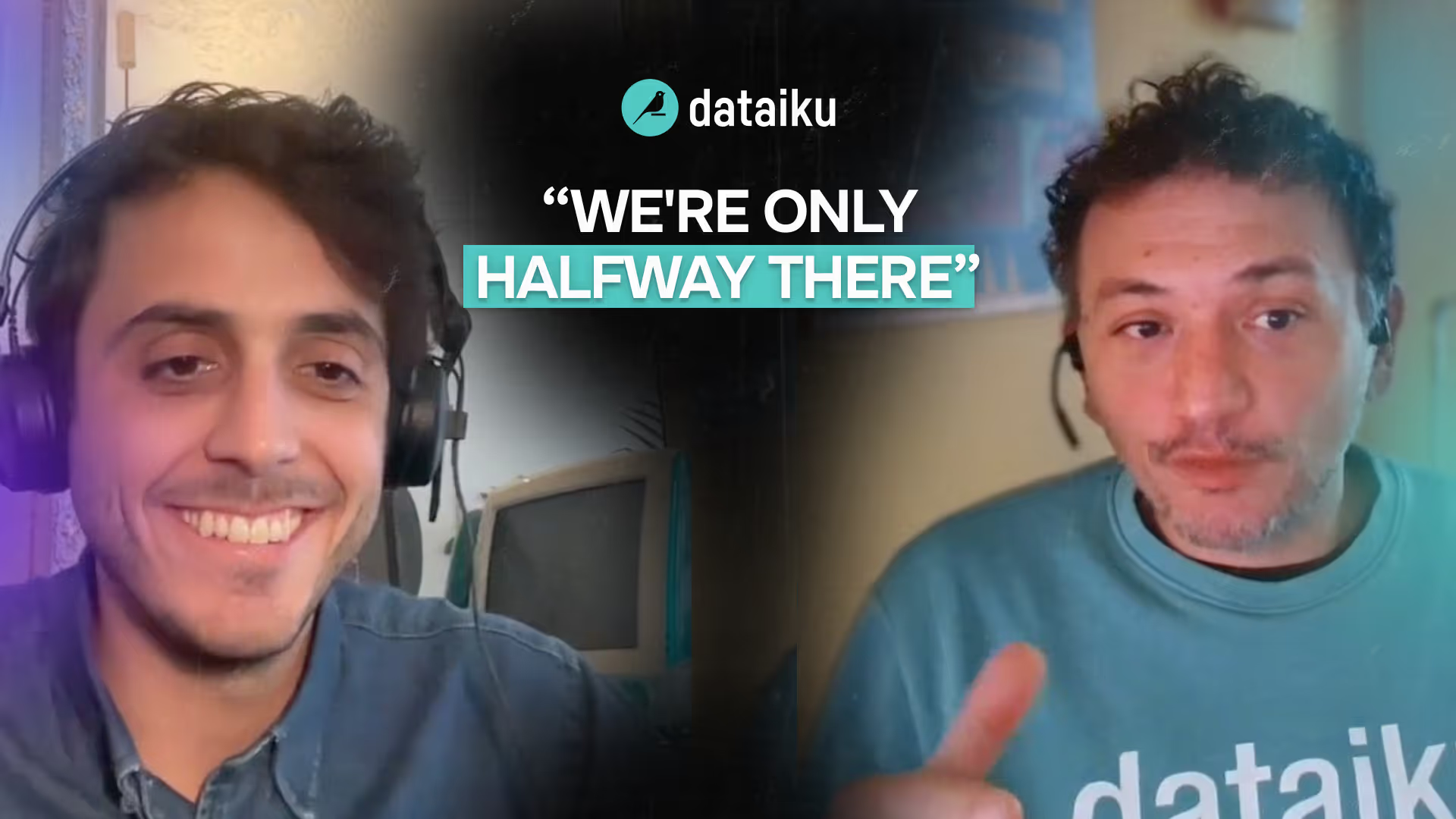
How Mirakl is transforming its operations and its market through AI
Few companies embody the evolution of commerce technology as clearly as Mirakl. Founded over a decade ago, the French unicorn has helped shape the marketplace model that powers global retailers like Decathlon, Leroy Merlin, and Best Buy. But as Chief Data and AI Officer Anne-Claire Baschet explains, Mirakl is now entering a new phase — one where AI doesn’t just enhance operations, it redefines them.
Published on :
September 30, 2025
From marketplaces to a new era of commerce
Mirakl was built on a simple yet powerful idea: enable every retailer to operate like Amazon by connecting their ecosystem of sellers and products through a single, scalable marketplace platform.
Today, over $11 billion in GMV flows through Mirakl-powered sites every year.
“You may not know Mirakl, but you’ve probably bought through us — on La Redoute, Leroy Merlin, or Macy’s.”
As retail evolved, so did Mirakl’s product line. What started as a marketplace infrastructure expanded to include retail media and, more recently, Mirakl Connect, a network that allows brands to sell seamlessly across e-commerce and social platforms like TikTok and Walmart.
The AI turning point: rebuilding, not patching
When ChatGPT arrived, Anne-Claire and her teams experienced what she calls a “pivot moment.”
“If we were to build Mirakl today, we would build it completely differently.”
Instead of simply adding AI features on top of existing systems, Mirakl made a radical choice: rethink its architecture around AI.
The company launched new AI-native products such as Catalog Transformer, a tool that automatically maps and enriches product data across multiple sellers, languages, and taxonomies — turning what once took weeks into a few minutes.
“We didn’t just add an assistant. We accepted that parts of the code had to be rewritten. That’s what real transformation means.”
The shift also birthed Nexus, Mirakl’s newest platform, designed to help retailers and brands thrive in what Baschet calls the “Agentic Commerce” era — where shoppers interact directly with AI agents rather than static search bars.
The rise of “agentic commerce”
Anne-Claire sees the retail landscape entering its third major wave.
If the first was e-commerce and the second was marketplaces, the third is AI-driven, conversational shopping.
“It’s not just a change in search. It’s a change in the whole buying experience.”
Tools like Perplexity, which allow users to search and purchase directly through AI chat interfaces, are redefining how consumers discover and buy.
For Mirakl, this creates both a challenge and an opportunity: ensuring that every product, catalog, and checkout flow is optimized for AI-first platforms.
“Who wants to go on ten sites and read endless product pages to find what fits? The agent will do that for you.”
Nexus is Mirakl’s answer — a commerce OS that standardizes how product data is structured and surfaced across AI ecosystems, from Google and OpenAI to Mistral.
Its goal: help retailers expose, sell, and fulfill seamlessly across these emerging intelligent channels.
Rewiring internal operations around AI
The AI transformation isn’t limited to Mirakl’s customers — it’s reshaping the company itself.
Internally, Anne-Claire’s vision is clear: every Mirakl employee should become a builder of agents.
“We believe 100% of our people will create their own agents — for themselves, their teams, or their workflows.”
Mirakl has rolled out Dust, an internal platform that allows any employee to build AI agents connected to company data, without writing a single line of code.
Already, 40% of the workforce has created their own agent — from sales teams automating meeting prep through Salesforce to buyers building negotiation assistants.
“Our goal isn’t to replace people — it’s to make them more powerful.”
This initiative reflects Mirakl’s broader belief that AI should be democratized.
Everyone, from engineers to customer support, is encouraged to experiment, prototype, and share their agents with others.
Rethinking roles and recruitment
Does this mean AI is replacing jobs?
For Anne-Claire, the answer is more nuanced.
“We’re not using AI to reduce costs. We’re using it to grow better.”
Instead of cutting headcount, Mirakl is seeing teams evolve.
For example, the company merged its documentation and customer support teams, creating a continuous feedback loop powered by AI.
Agents now handle 70% of common questions, while human experts focus on the more complex ones — and on improving the AI itself.
“It broke down silos. The same people now write better documentation, answer clients faster, and train the AI.”
Rather than hiring three times more people to scale, Mirakl invests in making its teams more capable, blending human expertise with AI execution.
A cultural shift, not a technical one
At the core of this transformation is a cultural conviction: AI isn’t a cost center — it’s an investment in people.
“Our greatest wealth is our colleagues and our clients. It’s normal to invest in their tools.”
Every employee now has access to AI assistants, training sessions (“office hours”), and the freedom to experiment safely within a secure, compliant framework.
For Anne-Claire, the key to long-term success lies in combining human intuition with machine acceleration.
“We’re entering a time when every team will have its agents — just like they once had their computers or spreadsheets.”
Redefining commerce from within
Mirakl’s journey illustrates a broader truth about AI adoption: real transformation doesn’t come from adding features, but from changing the way we work.
“It’s not about doing the same things faster. It’s about creating new ways to grow.”
By rebuilding its product architecture, empowering its teams, and helping retailers adapt to AI-native commerce, Mirakl is proving that technology can amplify both human creativity and business performance — without replacing one with the other.
Explore more from Phacet
Unlock your AI potential
Do more with your existing resources using tailored AI solutions.


.avif)





